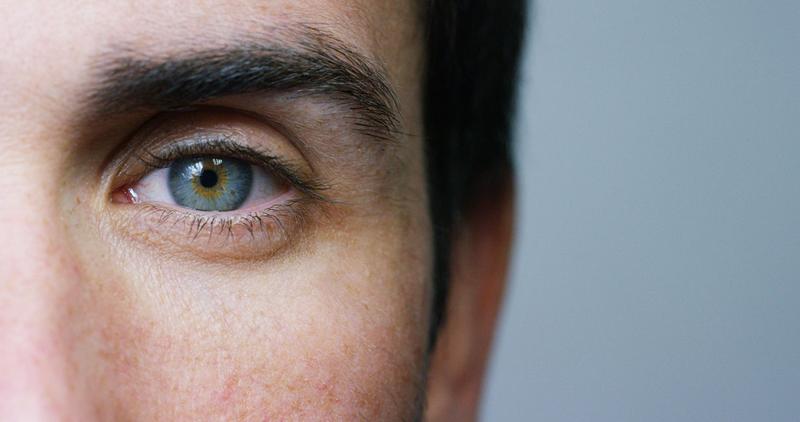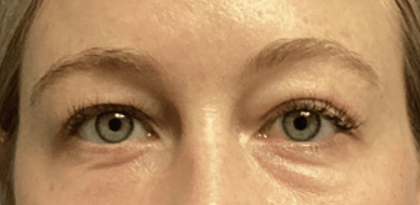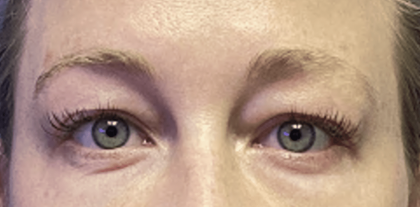Eyelid Surgery (Blepharoplasty)
Consultations offered at our two convenient locations in Kansas City, MO and Leawood , KS

Eyelid surgery (also known as blepharoplasty) is a procedure used to improve the sagging and/or tired appearance of the eyes. Today’s eyelid surgeries produce very natural results; they can also be performed efficiently and painlessly with a very minimal recovery time. At Monarch Plastic Surgery, our surgeons can customize the procedure so that each patient can achieve their desired look.
If you would like to begin your journey to a more youthful, refreshed look with eyelid surgery, schedule a consultation at Monarch Plastic Surgery today. We have helped countless patients in Missouri achieve an appearance that improves their lives, and we are excited to offer you the same. Schedule your appointment online today or call (913) 663-3838 to reach either our Leawood or Kansas City office.
Contents
- 1 Before and After Photos
- 2 About Eyelid Surgery
- 3 Benefits
- 4 Candidates
- 5 Personal Consultation
- 6 Preparation
- 7 Procedure
- 8 Recovery
- 9 Results
- 10 Corresponding & Complementary Procedures
- 11 Cost of Eyelid Surgery in Kansas City
- 12 FAQ
- 12.1 Does eyelid surgery (blepharoplasty) help with vision problems?
- 12.2 How long do the results of eyelid surgery last?
- 12.3 Are there non-surgical alternatives to blepharoplasty?
- 12.4 How long does it take to recover from eyelid surgery?
- 12.5 Can I combine eyelid surgery with other facial procedures?
- 13 References
Before and After Photos
About Eyelid Surgery
Eyelid surgery, or blepharoplasty, is a surgical procedure that focuses on improving the appearance of the eyelids. This can involve both the upper and lower eyelids, which may become sagging or puffy due to aging or genetics. These areas have a significant impact on overall facial aesthetics. (1) Many people pursue blepharoplasty to enhance their eye region by removing excess skin, tightening eyelid muscles, and reducing or repositioning fat deposits that create a tired or aged look.
Like other forms of cosmetic surgery, eyelid surgery can enhance your appearance and your self-confidence. Eyelid surgery can correct drooping upper eyelids and puffy bags below your eyes, both of which are features that can make you look older and more tired than you feel. Sagging skin above the eyes may even interfere with your vision. (1) Historically, eyelid surgery has been performed for both functional and cosmetic reasons. Statistics indicate that blepharoplasty is one of the most popular cosmetic procedures worldwide. It can significantly enhance an individual’s appearance and, subsequently, their self-esteem.
Benefits
Undergoing blepharoplasty offers numerous benefits. When patients receive treatment at Monarch Plastic Surgery, they generally see benefits such as:
- Enhanced aesthetic appearance: Blepharoplasty improves the overall look of the eyes, leading to a refreshed and vibrant appearance.
- Increased confidence: By addressing concerns linked to sagging eyelids, patients often experience a boost in self-esteem.
- Reduced tired appearance: Eliminates or reduces the very common “tired” look people often associate with age.
- Improved vision: For some individuals, particularly those with severe drooping on the upper eyelids, surgery enhances peripheral vision by removing tissue that obstructs sight.
- Long-lasting results: Patients can enjoy their improved appearance for many years, with results visible after the recovery period.
- Minimal scarring: Because incisions are strategically placed, visible scarring is generally minimal. Scars fade significantly over time.
- Customized treatment: Each blepharoplasty is tailored to meet individual goals and anatomy, allowing for targeted results.
- Combination with other procedures: Blepharoplasty can complement other aesthetic enhancements, such as facelifts or forehead lifts, providing a more comprehensive facial rejuvenation.
Candidates
Most eyelid surgery patients are aged 35 and older, but if the appearance of droopy, baggy eyelids runs in your family, you may decide to have eyelid surgery at a younger age. The best candidates for eyelid surgery are men and women who are physically healthy, psychologically stable, and have realistic expectations about what the procedure can achieve. During your consultation, your Monarch Plastic Surgery provider will discuss your goals and your medical history and evaluate your eyelids and surrounding structures to determine if you are a suitable candidate for blepharoplasty.
Personal Consultation
The blepharoplasty journey begins with a personal consultation at Monarch Plastic Surgery. During this visit, your doctor will take the time to understand your concerns and expectations fully. He will assess the condition of your eyelids, overall health, and facial structure. Additional tests, including visual field testing, may be instructed to analyze any functional limitations caused by sagging eyelids. (2) This consultation serves as a foundational step in forming a personalized treatment plan that aligns with your aesthetic goals.
Preparation
Once you have decided to proceed with your eyelid surgery, you will receive detailed instructions to ensure a safe and efficient surgical experience. You may be advised to:
- Discontinue blood thinners, herbal supplements, or medications as directed
- Avoid smoking and nicotine products before your surgery and during recovery (if applicable)
- Arrange for someone to drive you home and assist after the surgery
- Set aside adequate recovery time
Procedure

Eyelid surgery often includes the removal of fat and excessive skin and is often performed in conjunction with lid tightening (also called canthopexy) or other skin resurfacing techniques to result in a more natural look.
Blepharoplasty can treat either the upper or lower eyelids. These procedures can be simultaneously performed in one treatment session. Upper eyelid surgery focuses on removing excess skin and potentially fat from the upper eyelids, which can give the eyes a more open and youthful appearance. The incision is typically made along the natural crease of the eyelid, making scars less visible.
Lower eyelid surgery typically involves removing or redistributing fat under the lower eyelids to eliminate the appearance of puffiness or bags. Incisions may be made either just below the lash line or inside the lower eyelid. Incisions for lower eyelid surgery can also be made on the inside of the eyelid, known as the transconjunctival approach. (2)
Once all necessary adjustments are made, your surgeon will close the incisions. These procedures typically take around 1-3 hours, depending on whether one or both eyelids are being addressed.
Recovery
After your eyelid surgery, your eyelids will likely be swollen and bruised, which is completely normal. Your Monarch Plastic Surgery provider(s) will give you prescriptions to assist in your recovery, so please take these medications as instructed.
When sleeping and resting, please lie on your back and keep your head elevated. You should avoid strenuous activities for about 2 weeks. Most individuals return to regular activities within about 1-2 weeks, though final results may take several weeks to refine. Regular follow-up appointments will be scheduled to monitor your healing progress and answer any questions you have.
Results
The results of blepharoplasty can be dramatic, restoring a youthful and rested appearance to the eyes and face. Patients find that they have a renewed sense of confidence as the signs of aging diminish after the surgery. Incisions are discreetly made alone the natural contours of the eyelids, and scars will fade significantly over time. As swelling subsides, the smoother contour of the eyelids will become more visible. Results are long-lasting, but it is important to continue to make an effort to protect your skin against sun damage that could cause accelerated aging.
Corresponding & Complementary Procedures
The results of eyelid surgery can be further enhanced with a brow lift. Brow lifts, also known as “forehead lifts,” tighten skin and muscles on the forehead to raise the eyebrows and reduce the appearance of wrinkles and furrows that can make a person appear aged, angry, sad, or tired. During these procedures, your surgeon will make discreet incisions to lift and reposition excess facial skin and tighten underlying tissues and muscles with sutures. Patients who combine an eyelid lift with a brow lift not only benefit from a decreased total recovery time, but also experience more significant rejuvenation and often appear several years younger.
Cost of Eyelid Surgery in Kansas City
The total cost of your eyelid surgery will vary depending on the scale of your procedure, your goals, necessary surgical measures, and a few other factors. When you meet with one of the expert surgeons at Monarch Plastic Surgery to discuss treatment, you will receive a price quote. Monarch Plastic Surgery also offers procedure financing through CareCredit.
Our staff is available to help you navigate insurance coverage, payment plans, pricing, and more. If you have any questions about pricing, please do not hesitate to call either our Leawood or Kansas City office at (913) 663-3838 and get the information you need.
FAQ
Does eyelid surgery (blepharoplasty) help with vision problems?
Blepharoplasty is intended as a cosmetic procedure; however, it can potentially improve vision obstructions caused by severely drooping eyelids by removing excess skin.
How long do the results of eyelid surgery last?
While results can vary, many patients often enjoy lasting improvements for five to ten years or longer.
Are there non-surgical alternatives to blepharoplasty?
Non-surgical options like dermal fillers and chemical peels can address mild concerns, but they do not resolve the issue of excess skin or more serious sagging.
How long does it take to recover from eyelid surgery?
Most patients return to non-strenuous activities within a week or two weeks, with complete recovery taking a bit longer.
Can I combine eyelid surgery with other facial procedures?
Absolutely! Many individuals choose to combine their eyelid lift with a facelift or brow lift for enhanced facial rejuvenation; combining these procedures can result in a more balanced outcome as well.
References
- Rebowe RE, Runyan C. Blepharoplasty. PubMed. Published 2022. https://www.ncbi.nlm.nih.gov/books/NBK482381/
- Naik M, Honavar S, Das S, Desai S, Dhepe N. Blepharoplasty: An overview. Journal of Cutaneous and Aesthetic Surgery. 2009;2(1):6. doi:https://doi.org/10.4103/0974-2077.53092





















